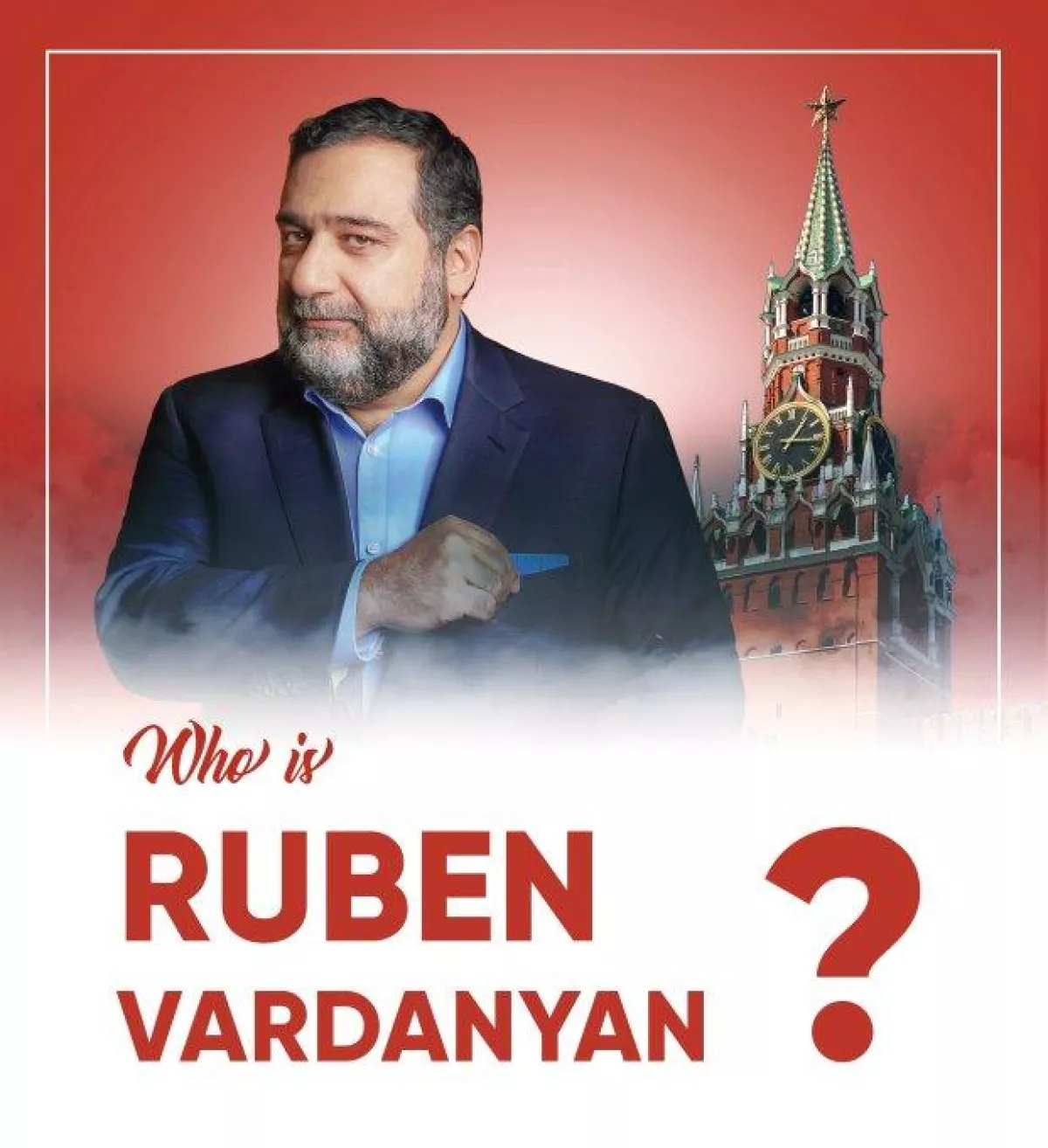Vardanyan's trial should become a powerful precedent Article on Daily Express
The British newspaper, Daily Express, has published an article on the activities of Armenian citizen Ruben Vardanyan, who is charged under the articles of torture, mercenarism, violation of laws and customs of war, financing of terrorism and other articles of the Criminal Code of the Republic of Azerbaijan. Caliber.Az reprints the piece.
Editor's note: The author of the article is Taras Kuzio - professor of political science at the National University “Kyiv-Mohyla Academy”.
With mixed signals from Washington and Mar-a-Lago over Ukraine, the last week has seen a marked escalation in the war on both sides, widely interpreted as attempts to gain strategic advantage in advance of Donald Trump’s return to the White House yesterday.
But last week also gave Ukrainians two good reasons to celebrate. Hot on the heels of the UK Government’s re-affirmation of its unshakable backing for Ukraine’s fight came the bringing to trial of a notorious Putin-funding billionaire sanctioned by Kyiv for his role in the conflict.
In the dock stands Ruben Vardanyan, a man whose CV reads like the profile for a pulp thriller villain.
Vardanyan developed an early taste for the rich commercial possibilities of the dash for capitalism in 1990s Russia - emerging as a leading oligarch.
He was the CEO and chief shareholder of the Troika Dialog, a Russian investment bank that was the heart of the so-called ‘Troika Laundromat’ - a money-laundering scheme which saw at least $4.8m flow from Russian sources into Europe and the US between 2003 and early 2013.
While Vardanyan has maintained his innocence, investigators from the Organized Crime and Corruption Reporting Project claimed to have found his signature was on a document in which he purportedly gave a loan to a company that was part of a network of the operation, and that he had received more than $3.2 million US dollars from so-called Laundromat companies to pay his credit card and tuition for his children's school.
But I digress. Vardanyan's close financial ties with the Russian authorities earned him the nickname “Putin's wallet”.
A fraction of the same billions which earned him the nickname were siphoned into charitable causes, creating a philanthropic “fig-leaf” for this Kremlin crony.

Certainly, for a time this seemed to work, because despite being on the Ukraine Secret Service’s most wanted list and having 46 members of the US Congress fight to impose personal sanctions on him, many media outlets continue to label him a philanthropist rather than a warmonger.
But there is no doubt he has been profiteering from Russia’s war against Ukraine via his top management role in Volga Dnieper, a major Russian military logistic provider. This, of course, has led to directly to his sanctioning by the Government of Ukraine. Cause enough, one might think, for a legal trial.
But in fact, while all this hardly amounts to a character reference, it’s on none of these counts that Vardanyan currently stands accused in a court of law.
Nor is the court in question in The ICC (International Criminal Court) in The Hague or Kyiv as I personally would have hoped. Vardanyan is standing trial in Baku, Azerbaijan. The charges – some 42 of them in total – relate to his recent leadership position of a breakaway puppet regime in Azerbaijan’s Karabakh region.
This illegal and now abolished regime bore the familiar stamp of a Moscow-backed destabilisation project: namely, the seizure of a border territory between two former Soviet republics to justify a long-term Russian ‘peacekeeping’ presence and allow Moscow to manipulate the strings of power.
The charges against him include planning and waging a war; terrorism and financing terrorism; the forcible seizure and retention of power and forcible change of the constitutional structure of the state.
How Vardanyan morphed from Kremlin financier to Karabakh provocateur is a James Bond-villain epic in itself. In 2021 he renounced Russian citizenship and returned to his native Armenia, rapidly becoming “President” of the so-called “Nagorno-Karabakh Republic” - a fake Armenian state, with Russian military backing, created in the west of Azerbaijan’s internationally recognised territory in the early 1990s.
It is right that Vardanyan should be brought to trial. The Azerbaijani authorities should make the process as open and transparent as political sensitivities allow, given the still unsigned peace treaty between Azerbaijan and Armenia.
As a British-born proud Ukrainian patriot, I could wish that Vardanyan were facing another trial and in another place, for his criminal support for Russia’s war against Ukraine.
But I welcome the courage shown by the Government of Azerbaijan in bringing this man to face justice. It cannot be an easy matter for a small nation on Russia’s borders to risk the Kremlin’s wrath.
Vardanyan's trial should become a powerful precedent for all those accused of creating and supporting illegal separatist movements on behalf of foreign powers.








